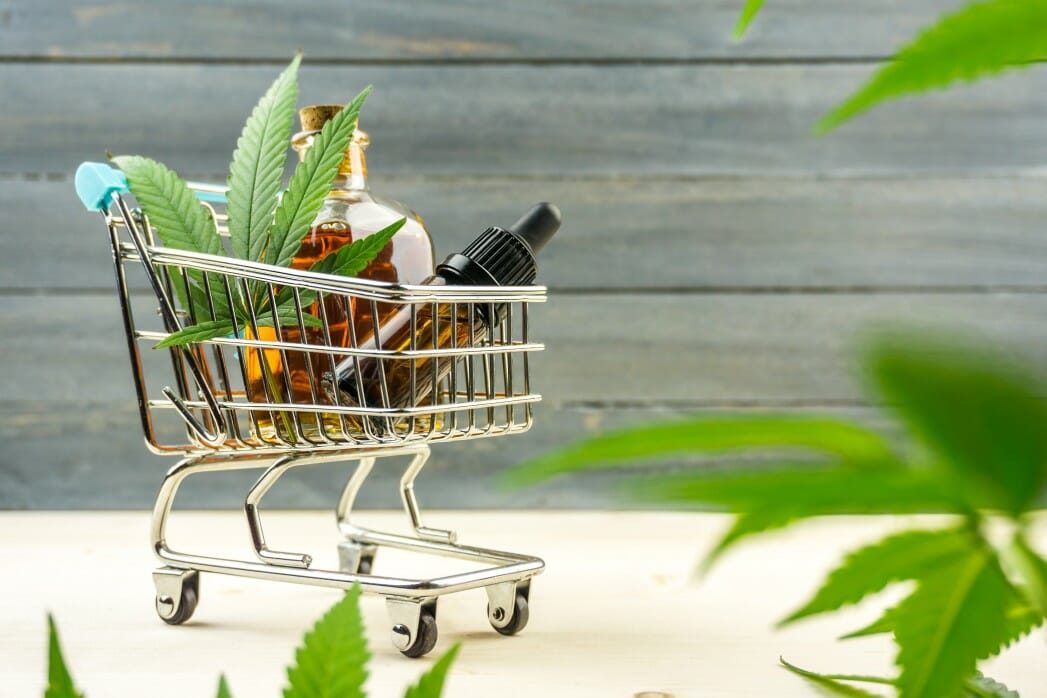New Legislation is Creating Opportunity
State-by-state legalization may mean a huge surge in the U.S. economy.
#SponsoredPost
[dropcap letter=”A”]fter years of waiting, cannabis is about to see some serious growth in the North American market. In 2021, we’re anticipating federal legalization, and more than half dozen new Initial Public Offerings (IPOs) to push into the black, according to Nasdaq. This will conclusively demonstrate that the legal cannabis industry is legitimate and can be an undeniably moneymaker.
Every year, millions of people recommit to making lifestyle changes that tend to center around a more active approach to health and fitness, improved finances, and learning new things for personal and professional development. That creates new marketing opportunities through more visibility.
California, already the world’s largest legal cannabis market, is poised to see aggressive sales growth in the coming years. As we look ahead to 2021, it’s being projected that the state’s legal revenues could grow from nearly $3 billion in 2020 to $7.2 billion by 2024, according to Arcview Market Research.
“The legal glocal cannabis market grew by 46% in 2019 despite challenges caused by overregulation and overtaxing in the two biggest markets; California and Canada,” said Troy Dayton, Founder and Chief Strategy Officer of The Arcview Group. “That is a true testament to just how popular cannabis is among consumers and the ongoing impact of new markets coming online and maturing. The possibilities are boundless as political progress opens up more markets across the world, and struggling markets sort out their regulatory framework.”
What about other states?
South Dakota, Montana, Arizona, and New Jersey chose to legalize adult-use marijuana quickly putting pressure on New York to push through its own legalization efforts. In a recent survey by Spectrum News/Ipsos, there was 61% support for cannabis legalization in New York. One major reason for the push by state legislators’ move to legalize in 2021 is that they’re expecting the canna-industry could generate $300 million in revenue. That would help with the economic hardship New Yorkers have faced as job loss skyrocketing. It’s projected that the state is already working on incorporating marijuana into the next state budget. With nearly 20 million people, New York is likely to become the next big American market for recreational use.
Why should you care?
As more states legalize cannabis, the impact on ancillary businesses is massive. Growers and dispensaries aren’t the only players in the sector either. In fact, when you run the numbers they’re actually only a relatively small portion of the industry on the whole. If you compare cultivators and distributors to the size and scope of the ancillary market, you may be surprised. The ancillary market operates behind the scenes. It is made up of companies involved with packaging, insurance, advertising, investors, security, and more.
Can you get involved with ancillary cannabis?
Absolutely! Because those in ancillary industries don’t have any direct involvement with the plant, they are often called “non plant-touching,” and therefore aren’t subject to the same state and federal regulations or legislation that the plant-touching companies are.
For example, advertising, marketing, and public relations consulting are huge growth areas. As the regulations, demand, and scale of operations within the industry continue to grow, companies are repositioning. Part of that involves them turning to advertising agencies that understand the rules and regulations of how to market in this ever-changing growth category.
Despite the legal status of cannabis in a growing number of states, the industry still has a legacy bad reputation. Changing perception, spreading information, and influencing people that it’s a legitimate business and real marketable lifestyle is what advertisers, PR specialists, and publicists do.

What marketing regulations and restrictions do cannabis and CBD face?
Marketing companies that are prepared to cater to the cannabis community are designed to help navigate the red tape that comes with working in the industry. For example, a company may struggle with a social media shut-down for using the wrong language in a marketing strategy. Passing off their marketing needs to a canna-specific marketing agency allows the company to focus on the business, while letting a marketing expert navigate the intricacies of canna-promotions on social media.
The primary restrictions companies face happens when they attempt to advertise their brand/product on digital platforms. How to effectively launch strategic marketing campaigns while staying within the industry guidelines and remaining fully compliant with rules implemented by the FCC is critical. Every state has its own legal guideline of what is considered allowable when it comes to cannabis, including how it’s marketed. Some states are more restrictive, requiring state approval or distinct language/disclaimers. A general guideline is to focus ads on properties where at least 72% of the audience is 21+.
One of the industries biggest pitfalls is the imagery. Too many brands show flower and consumption in their ads which is an industry no-no. Much like alcohol ads, images and messaging cannot show consumption or appear to target minors, and while it should go without saying, false claims are illegal and not allowed.
Can I advertise on social media?
Facebook, Instagram, and Google are strict with cannabis and cannabis related advertising (including hemp derived CBD or other non-plant touching products) but it can be done. It’s a wild terrain navigating through the continual shift of rules and regulations based on new state and federal laws being passed. That is why it’s key to keep in mind that the rules in the beginning of 2021 might be different in a few months, which is another reason having an agency partner prepared to cater to the cannabis community matters.
As for how each social media outlet looks at canna-marketing, Facebook and Instagram don’t allow ads that promote the sale or use of illegal, prescription, or recreational drugs. This includes ads that contain drug-related paraphernalia, ads with images that include the leaf or plant itself, or anything that implies the use of a recreational drug. Recently, Facebook changed their policy to allow results from verified marijuana-related accounts that show up in searches for terms like “cannabis” and “marijuana,” meaning you may now list your cannabis company after being verified by Facebook. Facebook has also recently allowed advertisers to run ads for topical hemp, however, the ads cannot specifically feature those products.
Google currently restricts advertising of canna brands, including CBD. Their policy does not allow ads for substances that alter mental state for the purpose of recreation. They also do not allow ads for products or services marketed as facilitating recreational drug use nor ads for instructional content about producing, purchasing, or using recreational drugs. Punishments for violating these restrictions include ad disapproval, account suspension, or compliance review.
However, sometimes, with some creativity, imagery and copywriting, you can advertise cannabis ancillary services on Google. But you’ll need guidance from a company that has done testing and knows how to play by the rules.

Are there other social platforms for cannabis?
Yes. There are niche social media sites dedicated to cannabis consumers and businesses. Check out these sites, follow the conversations happening, and look for the best opportunities to engage and build your following. Here are several cannabis-friendly social media platforms to help get you started:
- Leafwire: A new cannabis social network that’s growing quickly. This community is targeted to businesses and professionals, and calls itself the LinkedIn of cannabis.
- MjLink: Formerly known as WeedCircles, focuses on businesses and professionals.
- Duby: Known as the largest cannabis social network for consumers.
- Weedable: You can create a business profile to connect with individuals and other businesses
- CannaSOS: One of the larger cannabis social networks with a focus on consumers
- WeedCircles: You can create a profile for your cannabis business and create groups to connect with individuals and business professionals.
If you are looking for more data on the cannabis industry, order this report from The Arcview Group, “The State of Legal Cannabis Markets 8th Edition”. It has the latest cannabis industry data to give you a deal-making edge as you navigate this ever-evolving market.
If you are looking for an advertising agency then find one that specializes in the cannabis space. Sunday Brunch Agency, based in California has consulted with many cannabis and ancillary companies. They offer end-to-end marketing and branding for clients who know they need help, but aren’t sure where to start.
[separator type=”thin”]


2 Comments